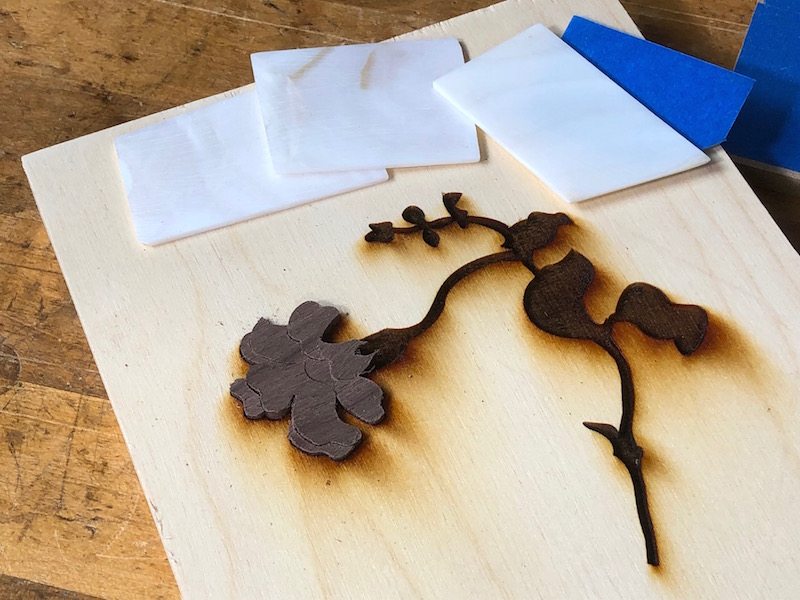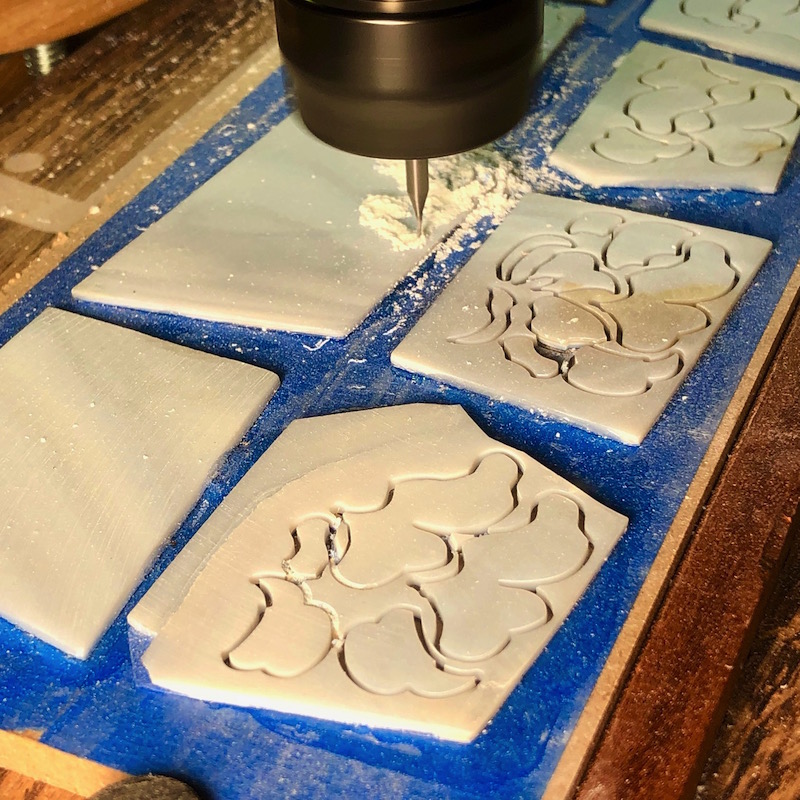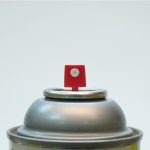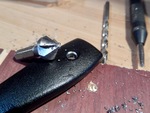We may receive a commission when you use our affiliate links. However, this does not impact our recommendations.
A Brief Introduction to Using a CNC for Inlays
As a woodworker, my work focuses on two areas: fine art and furniture. In fine art, the emphasis is on sculpture, primarily made from wood. As furniture maker with a background in design, rather than designing and building pieces around a client’s ideas and desires, I offer an extensive line of furniture for clients to choose from. So, unlike many professional woodworkers, I don’t do custom work. But, that doesn’t mean I don’t like a challenge.
If an interesting project comes over the threshold, sometimes I’ll jump in. That’s exactly the situation that came up recently, when former assistant, furniture maker, and friend, Reid Anderson needed a little help.
Reid was teaching a class in Boulle Marquetry at the Marc Adams School of Woodworking. Boulee Marquetry refers to the inlay techniques developed by the French craftsman Andre Charle Boulle in the 17th century. One of the key details of this technique is the inlaid piece often sits proud of background.

To test fit the inlay I used a piece of resawn walnut for the flower and a plywood base with the socket cut with a laser cutter.
For the class, Reid designed a flower that features inlays of wood for the stem and leaves and Mother of Pearl for the flower. The stem and leaves would be detailed carved once in place. The flower consists of 9 different flower petals that have to fit precisely in the mortised out area (the socket) of the wood background.
For the base, Reid used his Glow Forge laser cutter to cut sockets in plywood for the flower, stem and leaves. The leaves and stems would be hand cut in class with scroll saws. What Reid needed help on was the Mother of Pearl flowers. The best solution for a precision fit was to cut the flower petals with a CNC. That’s where I offered to help.

Tiny bits and slow speeds. I cut mother of pearl with a 1/32″ (.03125″) bit at 11″ IPM in multiple passes.
CNC Machining Mother of Pearl
CNC machining small parts for inlays has a number of interesting challenges. Choosing the right offset between the inlay and socket, selecting the right CNC mill, picking a machining speed, using a rare and expensive material efficiently and finding a way to hold small parts during machining are just a few of the many choices a digital woodworker has to make.
Rather than walk readers through a thousand words and dozens of photographs, I made the short YouTube video above to explain the basics, strategies, and solutions used for the project.
Don’t worry, there’s more on inlays to come. It’s a big topic to cover. In the future, I’ll get into more details on how to use a CNC for various kinds of inlays.
Additional Resources
- Furniture Maker Reid Anderson’s Website
- Guitar Maker David Myka’s Website
- GlowForge Laser Cutters
- Digital Woodworking on Instagram
- Digital Woodworking YouTube Channel
- Personal Work on Instagram
Here are some supplies and tools we find essential in our everyday work around the shop. We may receive a commission from sales referred by our links; however, we have carefully selected these products for their usefulness and quality.








